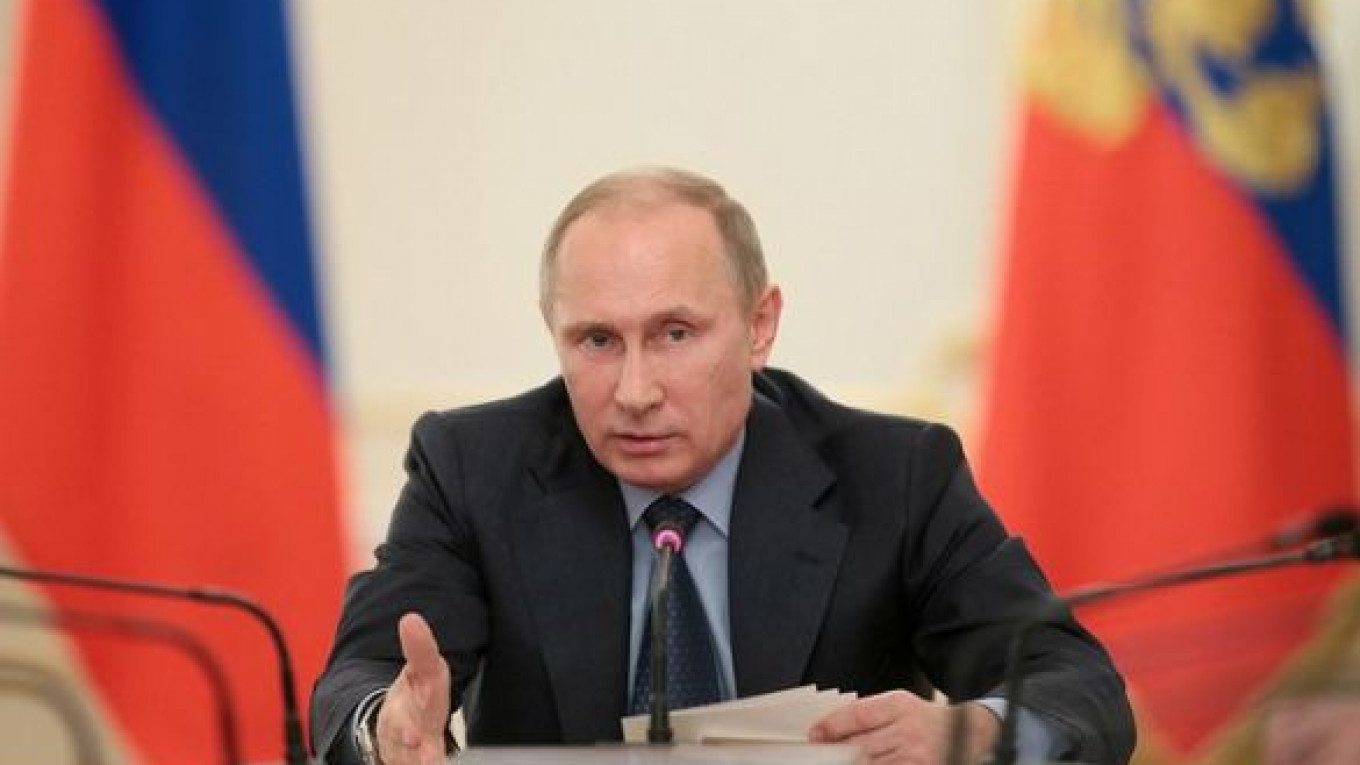Almost half of Russians expect a new leader capable of replacing President Vladimir Putin to appear by the 2018 presidential election, a poll conducted by the Levada Center found.
This group, 45 percent of respondents, has diminished slightly from 49 percent in the Levada Center's 2012 survey.
Twenty-six percent of this year's respondents thought it unlikely that a replacement for Putin would appear in 5 years. The remaining 29 percent had difficulty answering.
One-third of those polled said they wanted to see Putin remain in his post after 2018, while 45 percent said they did not, a 5 percentage point increase from 2012.
When asked what model for transferring political power they were most likely to support, 62 percent said that regular replacement of the country's leaders via national democratic elections was the best route.
About one in six, or 16 percent, said that they would be satisfied if those in power appointed their own successors and then transferred power to them after some time.
While Putin's numbers remained roughly the same, potential voters appear to have soured on his 2008 presidential successor, current Prime Minister Dmitry Medvedev. Sixty-three percent of poll respondents said that they would not want him to be become president after 2018, up from 50 percent last year.
According to the poll, if elections were held this week Putin would receive 41 percent of the vote as compared to Medvedev's 5 percent. Thirty-one percent of respondents would vote for another candidate, 11 percent would not vote and 11 percent found the question difficult to answer.
The survey was conducted at the end of October among 1,603 respondents in 45 regions of Russia and carried a 3.4 percent margin of error.
A Message from The Moscow Times:
Dear readers,
We are facing unprecedented challenges. Russia's Prosecutor General's Office has designated The Moscow Times as an "undesirable" organization, criminalizing our work and putting our staff at risk of prosecution. This follows our earlier unjust labeling as a "foreign agent."
These actions are direct attempts to silence independent journalism in Russia. The authorities claim our work "discredits the decisions of the Russian leadership." We see things differently: we strive to provide accurate, unbiased reporting on Russia.
We, the journalists of The Moscow Times, refuse to be silenced. But to continue our work, we need your help.
Your support, no matter how small, makes a world of difference. If you can, please support us monthly starting from just $2. It's quick to set up, and every contribution makes a significant impact.
By supporting The Moscow Times, you're defending open, independent journalism in the face of repression. Thank you for standing with us.
Remind me later.






